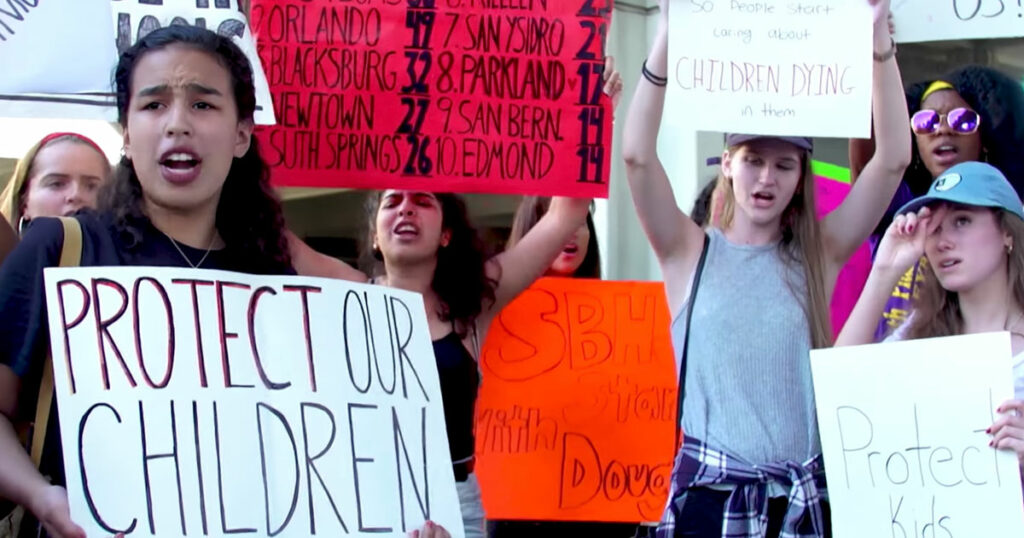Blog
Educators are Asking for Loving Supports, not Weapons of Destruction

For decades, educators, parents and students have been pushing for the supports that provide young people with stability and give them evidence that our society cares about them and is committed to their success. Yet, evidence shows that we have cared more about assessing and standardizing our young people than institutionalizing the cross-sector supports that are necessary to create the types of loving systems where all students will have an opportunity to learn and thrive.
A few months before the tragic shooting of 17 students and educators at Marjory Stoneman Douglas High School in Parkland, Florida, the young gunman attended his mother’s funeral and was asked if he was upset. His response should provide us insight into the road that disconnected him from his humanity: “I’m just upset that no one cared to show up.” We need no clearer evidence of the fact that hurt people are more likely to hurt people.
First, you can’t reach a child who doesn’t think you care. Education attainment is a higher order need. Consistent with noted human development psychologist Abraham Maslow’s “Hierarchy of Needs,” it is virtually impossible to systematically improve learning outcomes without supports that address the more foundational physiological needs (air, water, food, etc.), safety (physical, health, financial), and love/belongingness that most humans require. As Maslow notes, “the most basic level of needs must be met before the individual will strongly desire (or focus motivation upon) the secondary or higher-level needs.”
Our public schools and educators, who teach over 90% of America’s children, are charged with teaching students who are stable and those who carry pain, like the gunman. Fortunately, most students don’t carry out their pain in the way the gunman did, but educators everywhere know they have too few resources and students often have too few supports to address their basic human needs.
If these children do not get adequate support, exposure to trauma can lead to negative health indicators in adults including drug abuse, obesity, heart disease and cancer.
Secondly, more guns, police officers and metal detectors in learning spaces is the antithesis of what we need to create a healthier living and learning climate for students. Research from Johns Hopkins University shows that nearly 50% of school-going children are exposed to a traumatic event like physical or sexual abuse, abandonment, neglect, death of a loved one, violence, accidents, bullying, or living in chronically chaotic environments in which housing and financial resources are not consistently available. These traumatic events cause mental and physical health challenges for youth, and make them more likely to display negative behaviors, repeat a grade, have a lower GPA and be less engaged in school. If these children do not get adequate support, exposure to trauma can lead to negative health indicators in adults including drug abuse, obesity, heart disease and cancer.
Our systems that create inequity in health, housing and economic outcomes are increasing the prevalence of these traumatic events and hurting the mental, physical and behavioral health of our children. Yet, in most cities today we are unable to identify the level of mental health supports available for students and our systems are not set up reach the scale of mental health needs that exist among our children. The policy changes needed to address gun violence must also include policies and practices that create loving systems where children and families get the supports needed to access healthcare services, healthy foods, well-paid jobs, affordable housing, equitable and integrated schools, and rigorous curriculum to ensure that all students have care, stability, commitment and the capacity to achieve their full potential. Without this foundational support, we’ll continue a culture of violence and hatred, where the need for mental health services will always outweigh the resources available.
Schott recently released the Loving Cities Index, an analysis of the availability of cross-sector supports needed for all students to have an opportunity to learn. It is important to note that no major city is providing the full cross-sector supports needed for all students regardless of race, gender or zip code to have an opportunity to learn and thrive. In the ten cities highlighted in the report, the highest level of supports offered by a city was 53%. On average, cities only provided 42% of the vitally necessary supports.
Even though we are in the midst of a nationwide tragedy, we are witnessing hope and inspiration which can led to meaningful change. We applaud the Parkland students who marched to Tallahassee and on to D.C. to advocate for action, declaring #Enough. You only have to think back to lunch counter sit-ins and freedom rides to be reminded that powerful movements driving systemic change are most often sparked and driven by young people. We also applaud the youth and parent advocates in cities like Chicago, Philadelphia and Baltimore who have been pushing for the supports to make their cities healthy living and learning communities for their children and families.
Applaud, yes. Send our prayers to the families who have been impacted in Florida, definitely. But the moment demands more—we should all stand up to proclaim #Enough.



